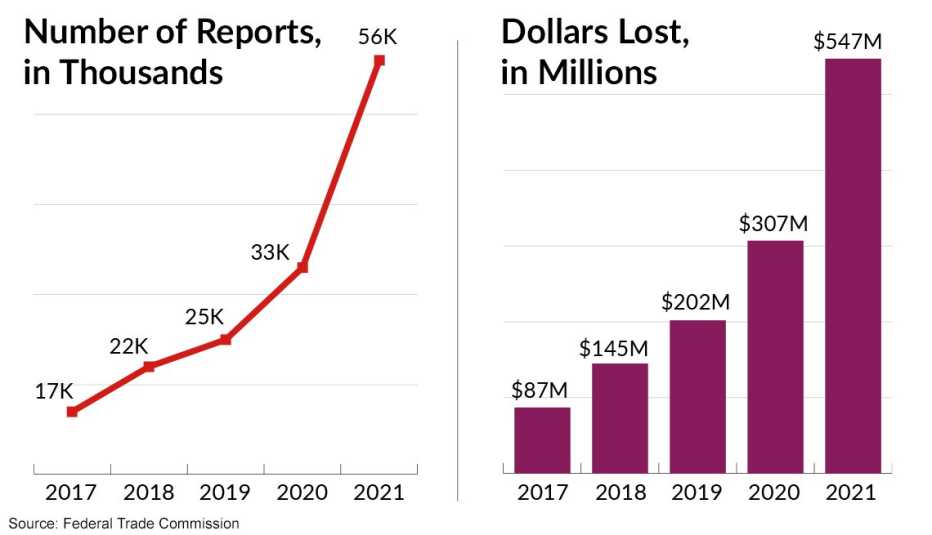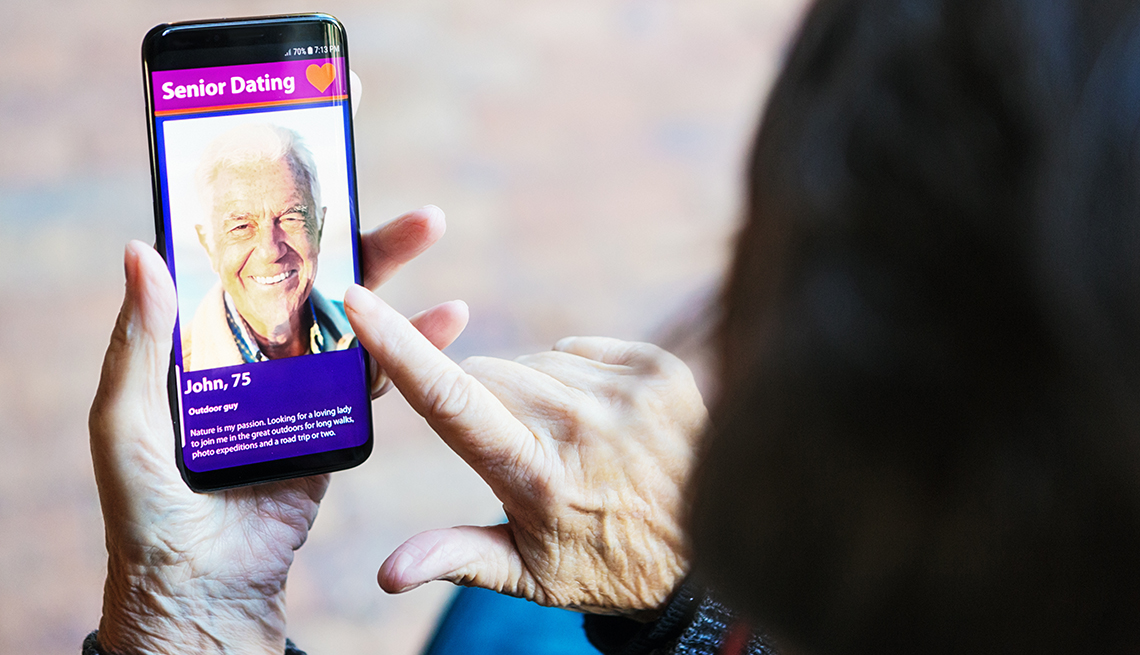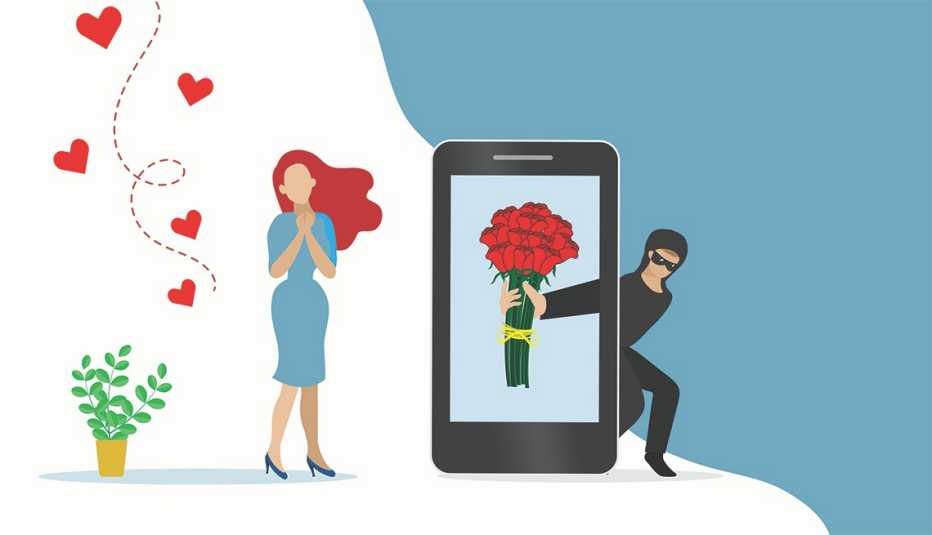Staying Fit
Here’s some heartbreaking news from the government: A record-setting $547 million was reported lost to romance scams last year.
Like flat champagne or a picked-over box of chocolates, there’s even more unwelcome news in the report from the Federal Trade Commission.


AARP Membership— $12 for your first year when you sign up for Automatic Renewal
Get instant access to members-only products and hundreds of discounts, a free second membership, and a subscription to AARP the Magazine.
Losses to romance scams over the five years ending in 2021 now stand at $1.3 billion, making romance scams the costliest of any fraud reported to the agency during that period.
Looking for love?
“Online dating can be a great way to find lasting love — or even your next fling,” the FTC says in a consumer-protection alert. But searching online for partners “also creates opportunities for scammers.”
In a worrying trend, losses involving cryptocurrency last year totaled $139 million — or the equivalent of 25 cents on the dollar.
But while crypto was hot, gift cards were the number 1 way that romance scam victims transferred funds to criminals.
Other key points in the FTC’s report:
- Romance scam reports rose in 2021 year over year among all age brackets, but “most striking” was a jump in reports from adults ages 18 to 29.
- The median individual loss for the under-30 crowd was $750. Among all ages, the median loss was $2,400.
- Those figures are dwarfed by the median loss of $9,000 among adults 70 and older.
- The median loss involving cryptocurrency, sometimes presented to victims as an “investment,” was even higher: $9,700.
- Overall, about one in four romance scams hinged on victims giving away gift cards or their redemption numbers, making this the top way scammers stole from their victims.
- While many victims report a romance scam that started on a dating site or app, also common were reports of these scams originating from contact through social media sites.
Romance scammers draw people in using pictures stolen from around the internet and building false personas that seem just real enough to be true, but they always have a reason never to meet in person, the FTC warns. Eventually, the supposed suitor will ask for money from the unwitting victim.
Romance scam reports in U.S. are soaring
The Federal Trade Commission says reported losses to romance frauds in 2021 hit a new record: $547 million dollars. There were about 56,000 reports filed last year and dollar losses were up among victims from every age bracket.
The graph below shows the growth in both dollars lost and reports filed every year since 2017. The 2021 figures reflect a six-fold growth in dollars lost and a three-fold growth in the number of reports filed since 2017.


Here are the FTC’s tips for staying safe:
- Nobody legit will ever ask you to help by sending cryptocurrency or giving away the numbers on a gift card. Anyone who does is a scammer.
- Never send or forward money to someone you haven’t met in person. Do not act on their investment advice, either.
- Talk to friends or family members about a new love interest, and pay attention if they’re concerned.
- Try a reverse image search of profile pictures. If the details don’t match up, it’s a scam.
Help stop scammers by reporting suspicious profiles or messages to the dating app or social media platform where you found them. Then, tell the FTC at ReportFraud.FTC.gov.


































































